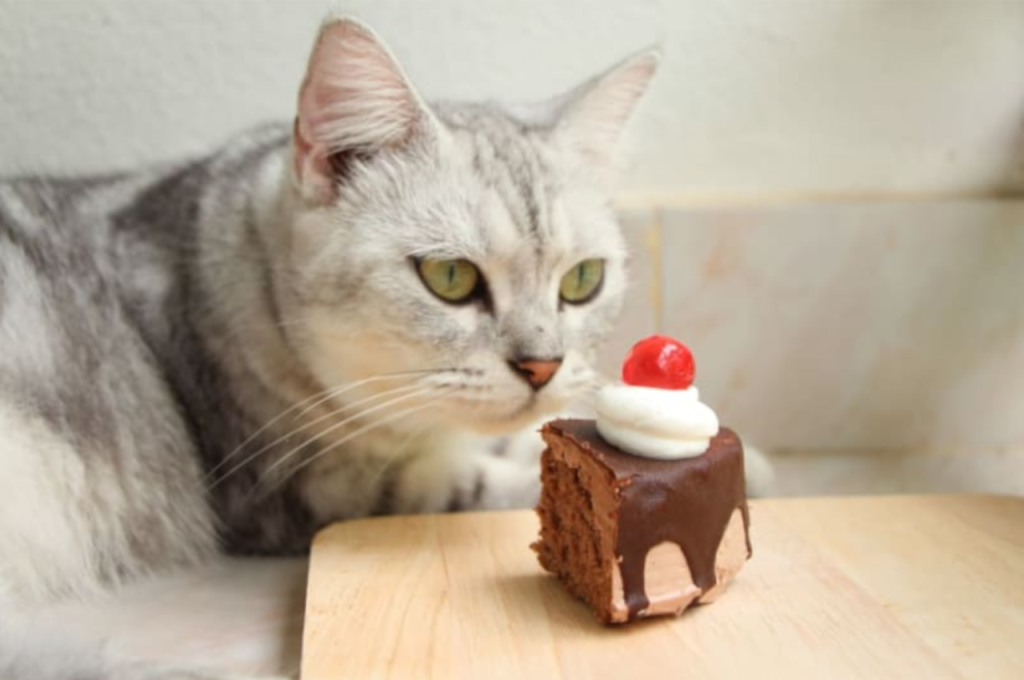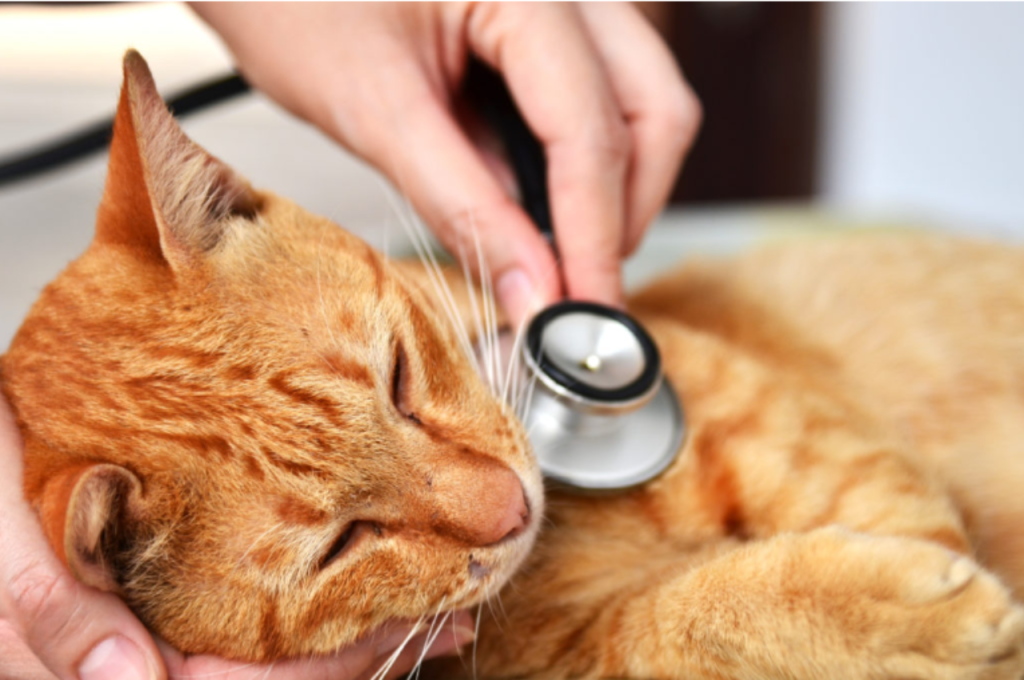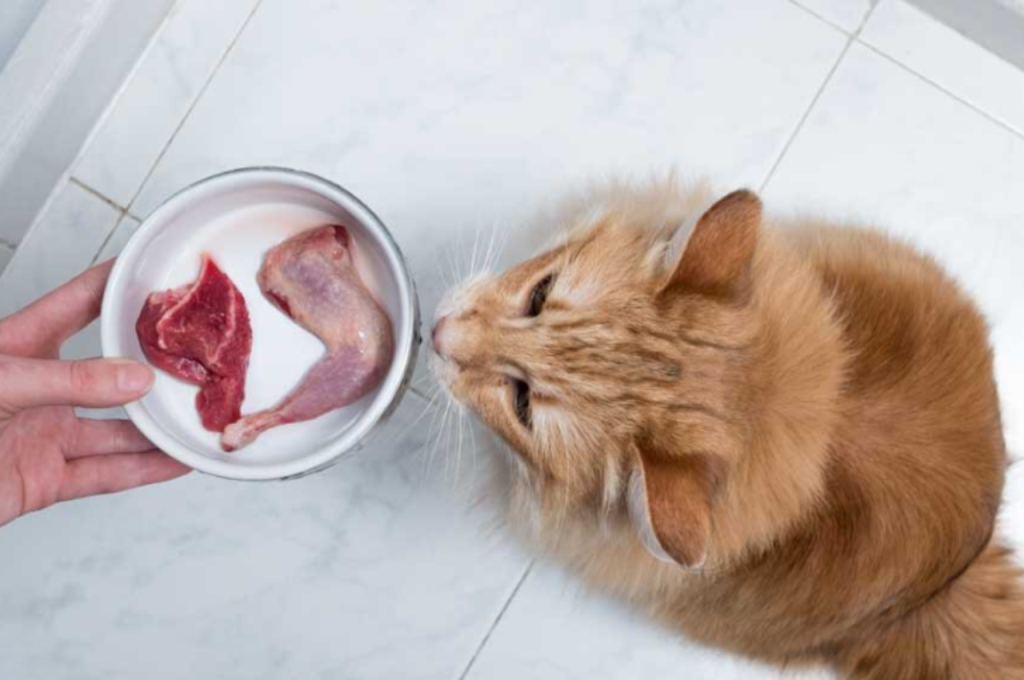Cats should never eat chocolate, onions, garlic, and raw eggs due to toxicity risks. Keeping your feline friend happy and healthy requires careful attention to their diet.
While cats are carnivores, not all types of meat are suitable for them. Besides, certain human foods can be extremely harmful, even deadly, if consumed by cats. It is crucial to be aware of these foods to prevent accidental poisoning.
We will explore the foods that are considered toxic for cats and should be strictly avoided. By understanding the potential dangers, you can take proactive steps to ensure your beloved pet stays safe and healthy. Let’s delve into the specifics of foods that should never be included in a cat’s diet to keep them thriving and content.
The Forbidden Foods
When it comes to the health and well-being of our beloved feline friends, it’s crucial to be vigilant about the types of foods they consume. Certain foods can be extremely harmful, and even toxic, to cats. In this article, we will explore the forbidden foods that should never be included in a cat’s diet.

There are specific foods that are downright toxic to cats and can lead to severe health issues or even fatalities. It’s important to be aware of these toxic foods to prevent any harm to your cat.
- Chocolate: Contains theobromine and caffeine, which are toxic to cats.
- Onions and Garlic: Can cause damage to red blood cells, leading to anemia.
- Grapes and Raisins: Known to cause kidney failure in cats.
In addition to specific foods, there are harmful ingredients commonly found in human foods that should never be given to cats. These ingredients can be detrimental to a cat’s health.
- Caffeine: Stimulant that can cause tremors, rapid breathing, and heart palpitations in cats.
- Xylitol: Found in sugar-free products and can lead to insulin release and liver failure in cats.
- Sweeteners: Artificial sweeteners like erythritol and sorbitol can be toxic to cats.
Toxic Foods
As caring pet owners, it’s important to be aware of the foods that can be toxic to our beloved feline friends. Here’s a list of common foods that should be kept far away from cats:
Chocolate
Chocolate is harmful to cats due to the presence of theobromine, a compound that they cannot metabolize effectively. Ingesting chocolate can lead to symptoms such as vomiting, diarrhea, increased heart rate, restlessness, and even seizures or death in severe cases.
Grapes and Raisins
Grapes and raisins pose a severe health risk to cats, potentially causing kidney failure even in small amounts. Due to the toxic substances they contain, it’s essential to keep grapes and raisins away from cats and avoid feeding them any products containing these ingredients.
Onions and Garlic
Onions and garlic are harmful to cats as they can damage their red blood cells, causing anemia. If you suspect your cat has consumed onions or garlic, seek immediate veterinary attention to prevent serious health complications.
Harmful Ingredients
When it comes to the well-being of our feline friends, it’s crucial to be aware of the foods that are harmful to them. While cats may exhibit curiosity towards certain human foods, it’s essential to understand that some ingredients can be toxic to their health. In this article, we will shed light on some common harmful ingredients that cats should never consume.
Xylitol
Xylitol is an artificial sweetener that is commonly found in sugar-free candies, gums, and baked goods. While it may be safe for humans, it can be highly toxic to cats. Xylitol can cause a rapid release of insulin in a cat’s system, leading to a dangerous drop in blood sugar levels, also known as hypoglycemia. Symptoms of xylitol poisoning in cats may include vomiting, loss of coordination, seizures, and even liver failure.
Caffeine
Caffeine is a stimulant found in various beverages such as coffee, tea, soda, and energy drinks. While it may provide a necessary pick-me-up for humans, it can have severe effects on cats due to their sensitivity to this substance. Ingesting caffeine can lead to restlessness, increased heart rate, tremors, and potentially even fatal consequences, such as seizures or cardiac arrest. It’s important to remember that even small amounts of caffeine can pose a significant risk to a cat’s health.
Alcohol
Alcohol can be extremely toxic to cats. Even ingesting a small amount can lead to severe consequences. Pets have much smaller bodies and metabolisms compared to humans, making them susceptible to alcohol poisoning. Alcohol affects cats differently than it does humans, causing symptoms such as disorientation, difficulty breathing, vomiting, and in extreme cases, even coma or death. It is crucial to ensure that cats are kept away from all alcoholic beverages and never allow them to consume any amount of alcohol.
Potential Health Risks
While prawns might appear to be a tempting treat for your cat, there are potential health risks associated with feeding them to felines. Prawns can sometimes contain parasites or harmful bacteria, which may lead to gastrointestinal upset or foodborne illnesses in cats.

Gastrointestinal Upset
Cats have sensitive digestive systems, which makes them prone to gastrointestinal upset when they consume certain foods. Foods that are high in fat, such as bacon or fried foods, can cause digestive distress in cats. Similarly, feeding cats dairy products like milk or cheese can lead to stomach pain, diarrhea, and vomiting.
Kidney Damage
It’s crucial to protect your cat’s kidneys from potential damage. Avoid giving your feline companion foods like onions, garlic, and chives. These ingredients contain substances that are toxic to cats’ kidneys and can result in kidney failure. Additionally, grapes and raisins have been linked to kidney damage in cats, so it’s best to keep them out of reach.
Neurological Symptoms
Certain foods can also cause neurological symptoms in cats. For instance, chocolate contains theobromine, a compound that cats are unable to metabolize properly. Ingesting chocolate can lead to seizures, tremors, and even heart problems in cats. Similarly, coffee and other caffeinated beverages should never be given to cats as they can cause caffeine poisoning, resulting in restlessness, rapid breathing, and muscle tremors.
By being aware of these potential health risks, you can ensure the well-being of your cat by steering clear of these harmful foods. Remember, it’s always best to consult with a veterinarian to determine the best diet for your feline friend.
Signs of Poisoning
Signs of poisoning in cats can vary depending on the ingested toxin, but common symptoms may include vomiting, diarrhea, lethargy, difficulty breathing, tremors, seizures, and changes in behavior. If you suspect your cat has been poisoned, it’s crucial to seek immediate veterinary care. Prompt intervention can help mitigate the effects of the toxin and improve the chances of a successful recovery.
Vomiting
Cats that have ingested toxic foods may exhibit sudden vomiting episodes. It’s crucial to seek immediate veterinary care if you suspect your cat has ingested something toxic. Delaying treatment can worsen their condition and put their health at risk.
Diarrhea
If you notice these symptoms in your feline companion, it’s crucial to seek prompt veterinary attention. Poisoning can have serious consequences for your cat’s health, and immediate treatment is essential to prevent complications and ensure their well-being.
Lethargy
If your cat appears unusually lethargic or lacks energy, it could be a red flag of poisoning.
Preventive Measures
To ensure the well-being of your feline friend, it is crucial to take preventive measures to keep them safe from consuming foods that may pose harm to their health. Cats are curious creatures and may be tempted to taste a wide variety of foods, but it’s important to know what can be harmful to them. Here are some preventive measures to keep your cat safe from hazardous foods.
Consult Your Veterinarian
Before making any changes to your cat’s diet, it’s always best to consult with your veterinarian. They can provide valuable insights on what foods are safe and what should be avoided based on your cat’s specific health needs. Your vet can also recommend a suitable diet plan tailored to your cat’s requirements, ensuring they receive proper nutrition without any risks.
Secure Hazardous Foods
Keeping hazardous foods out of your cat’s reach is essential to prevent any accidental ingestion. Store potentially harmful foods in closed cabinets or containers, and make sure they are securely sealed. Additionally, be cautious when handling and preparing meals to avoid leaving any hazardous foods exposed where your cat could access them.
Feline-friendly Alternatives
Cats are notorious for being picky eaters, and pet owners need to be aware of the foods that are harmful to their feline friends. Knowing what foods cats can never eat is crucial for their health and well-being. However, providing feline-friendly alternatives can help you ensure that your cat enjoys a balanced and nutritious diet.
Safe Treats
When looking for safe treats for your cat, it’s important to steer clear of potentially harmful ingredients such as garlic, onions, and chocolate. Instead, opt for natural and nutritious options like:
- Freeze-dried chicken or salmon.
- Catnip-infused toys or treats.
- Small pieces of cooked fish or meat.
Healthy Diet Options
Cats require a diet rich in protein and essential nutrients to thrive. When selecting healthy diet options, consider the following:

- Quality commercial cat food with high protein content.
- Fresh, lean meats such as chicken or turkey.
- Grains like brown rice or oatmeal for dietary fiber.
Conclusion
Always prioritize your feline friend’s well-being by avoiding harmful foods. Keeping them safe means steering clear of items like chocolate, onions, and grapes. A balanced diet is essential for a cat’s health and happiness. Remember, their health is in your hands.
Keep them purring with safe and nutritious meals.
